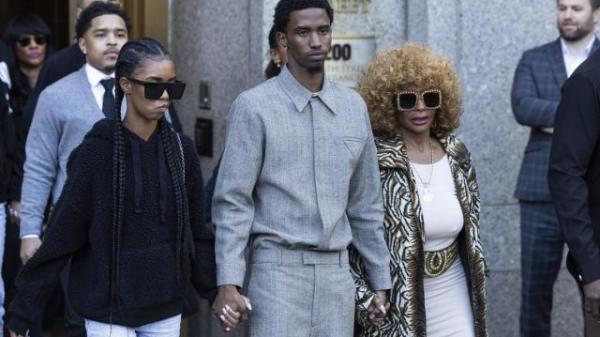Most landlords or management agencies need a security deposit. The deposit, usually one month’s rent, covers property damage and unpaid rent. However, recovering your rental security deposit can be difficult.

A happy couple celebrating the return of their security deposit from their old apartment after they had moved out of that location and into a new one. (Source: Zumper)
Before moving in, landlords usually ask for a security deposit and the first and last month’s rent. The security deposit is for when you leave if you didn’t pay rent, left trash, or damaged the apartment. After you leave, landlords have a specific number of days (varies by state) to return the security deposit, less any repairs, cleaning, or past-due rent they paid to restore the rental. Knowing what a landlord can and cannot withhold helps you move out. Non-negligent rental use is called “normal wear and tear”. Some examples are scuffs on walls or doors, faded paint, worn carpet, and pin or nail holes from hanging paintings.
9 Tips to Recover Your Security Deposit
- Record Move-In. Photograph or videotape the property and list any damages before moving in. Receive and keep a security deposit receipt. This documentation is essential if you need to recover your security deposit due to damage issues. Date and secure these records.
- Keep Property. Care for the rental property during your tenure to avoid security deposit issues. Clean and maintain the property and notify your landlord or property management of any difficulties. Remember that ordinary wear and tear (like a door dent) is usually not deducted from your deposit, but severe damage or neglect (like a major hole in the drywall) may be.
- Notify properly. Tenants must offer 30 days’ notice before leaving most leases. Be sure to give written notice per the lease. This helps you comply with the contract and avoid notice period problems.
- Clean and Fix. Cleaning and repairing the home before leaving will help you receive your security deposit returned. Check the kitchen, bathroom, and floors for dirt and grime. Fix any little holes in walls or broken fixtures you caused during your tenancy. This proactive strategy can reduce cleaning and repair deposit deductions.
- Record Move-Out. Before leaving, stroll through the house and record or photograph its condition. It could help if the landlord or management business seeks damages.
- Attend Final Inspection. Ask your landlord or manager for a final walkthrough. Discuss any issues and make sure both parties agree on the property’s condition during this inspection to avoid misunderstandings and confrontations. If your contract doesn’t say when your security deposit will be returned, ask the landlord during this last walkthrough.
- Return Keys. After departing, return all keys and access devices to the landlord or property manager or follow the instructions, such as leaving them in the unit or at reception. Get a key return receipt for your records.
- Leave Forwarding Address. You must leave a forwarding address to get your security deposit. Landlords usually send you a check and an itemized list of any money withheld after 15 to 60 days to return your deposit.
- Follow Up. If you don’t get your security deposit by the lease or local legislation deadline, contact your landlord or property management firm. Request your deposit return status and deductions politely.
READ ALSO: Los Angeles Housing Department Received 50,000 Eviction Notification Due to Unpaid Rents

















































